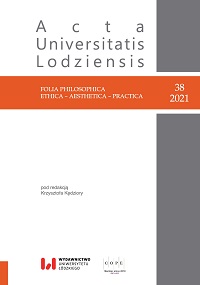The epistemic status of the principles of justice in Habermas and Rawls
The epistemic status of the principles of justice in Habermas and Rawls
Author(s): Gunnar SkirbekkSubject(s): Politics / Political Sciences, Law, Constitution, Jurisprudence, Ethics / Practical Philosophy, Political Philosophy, Rhetoric
Published by: Wydawnictwo Uniwersytetu Łódzkiego
Keywords: the Rawls-Habermas debate; principles of justice; validity claims; truth; justification
Summary/Abstract: The debate between Habermas and Rawls that took place in 1990s concerned how philosophy can justify the principles of justice under the conditions of pluralism of different and irreconcilable moral, philosophical, and religious doctrines. The context of the debate was mainly Rawls’ "Political Liberalism" and Habermas’ "Between Facts and Norms" as well. This paper argues that a wider geo-cultural perspective is pertinent in order to better comprehend the different justification strategies in Habermas and Rawls, concerning the principle of justice. This goes for their different geo-cultural experiences and presuppositions – in short, Rawls living in a self-confident North America in the post-war period versus Habermas’ German experience of civilization breakdown. However, it might also be relevant for the assessment of these two strategies in our time, faced with new kinds of geo-political differences and conflicts.
Journal: Acta Universitatis Lodziensis. Folia Philosophica. Ethica - Aesthetica - Practica
- Issue Year: 2021
- Issue No: 38
- Page Range: 131-138
- Page Count: 8
- Language: English

